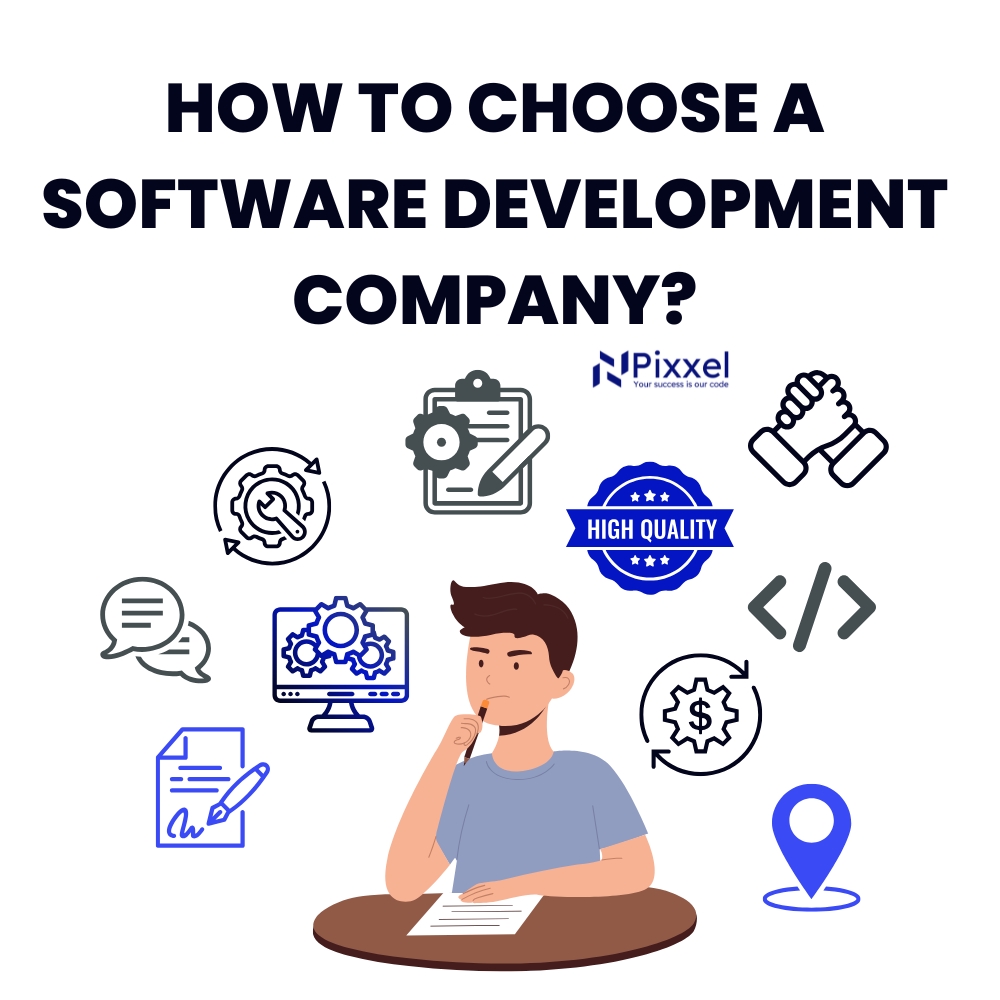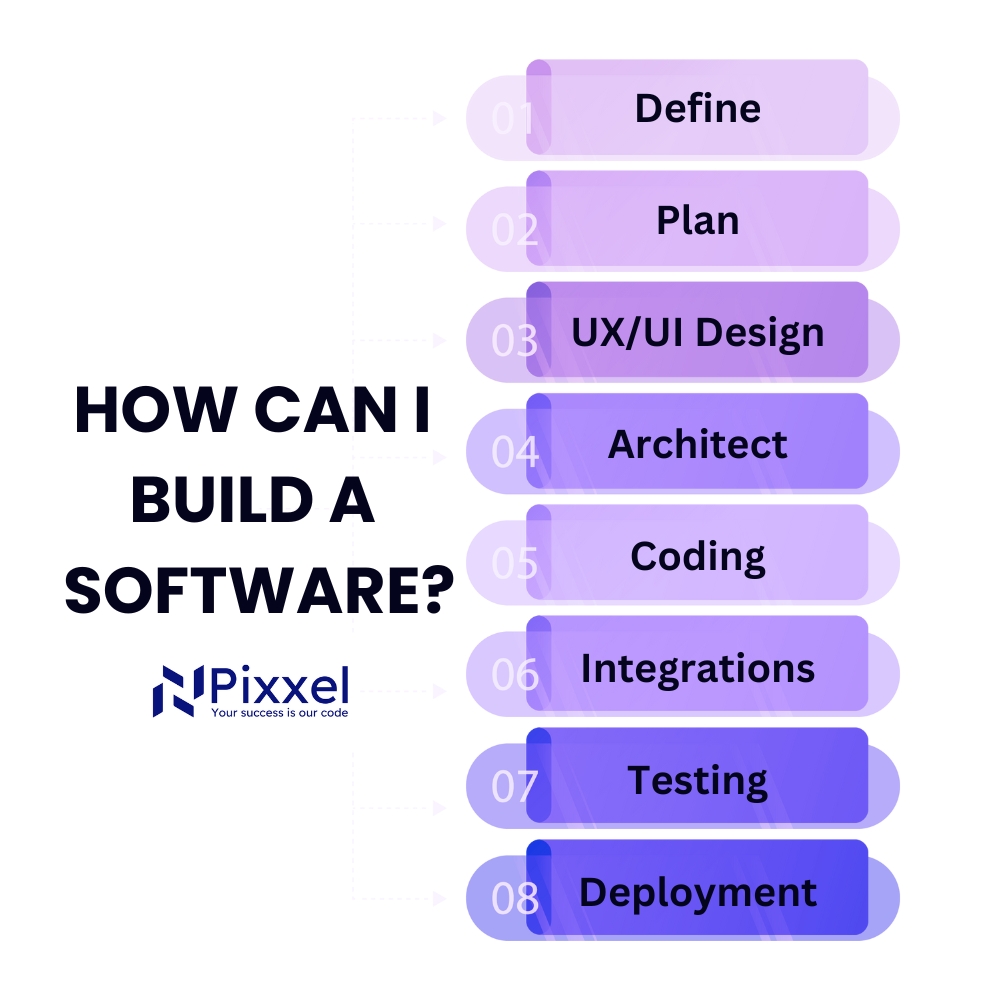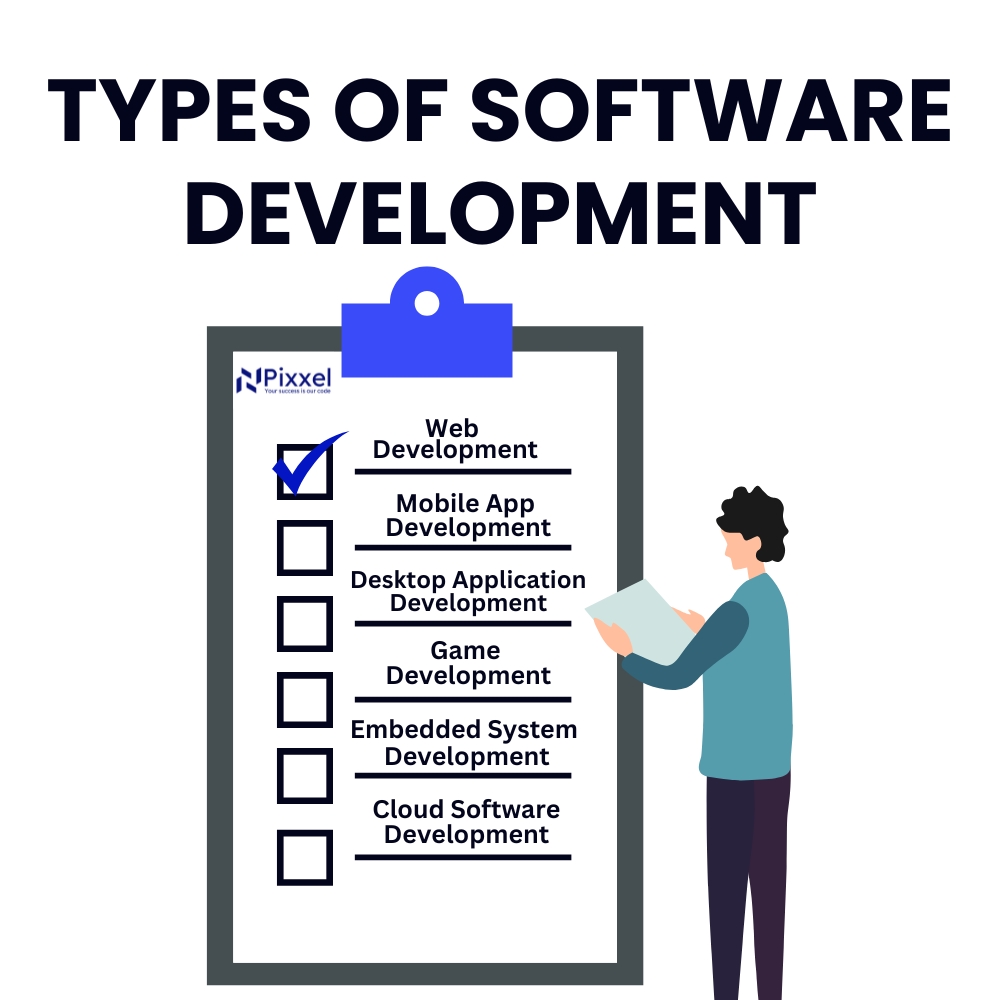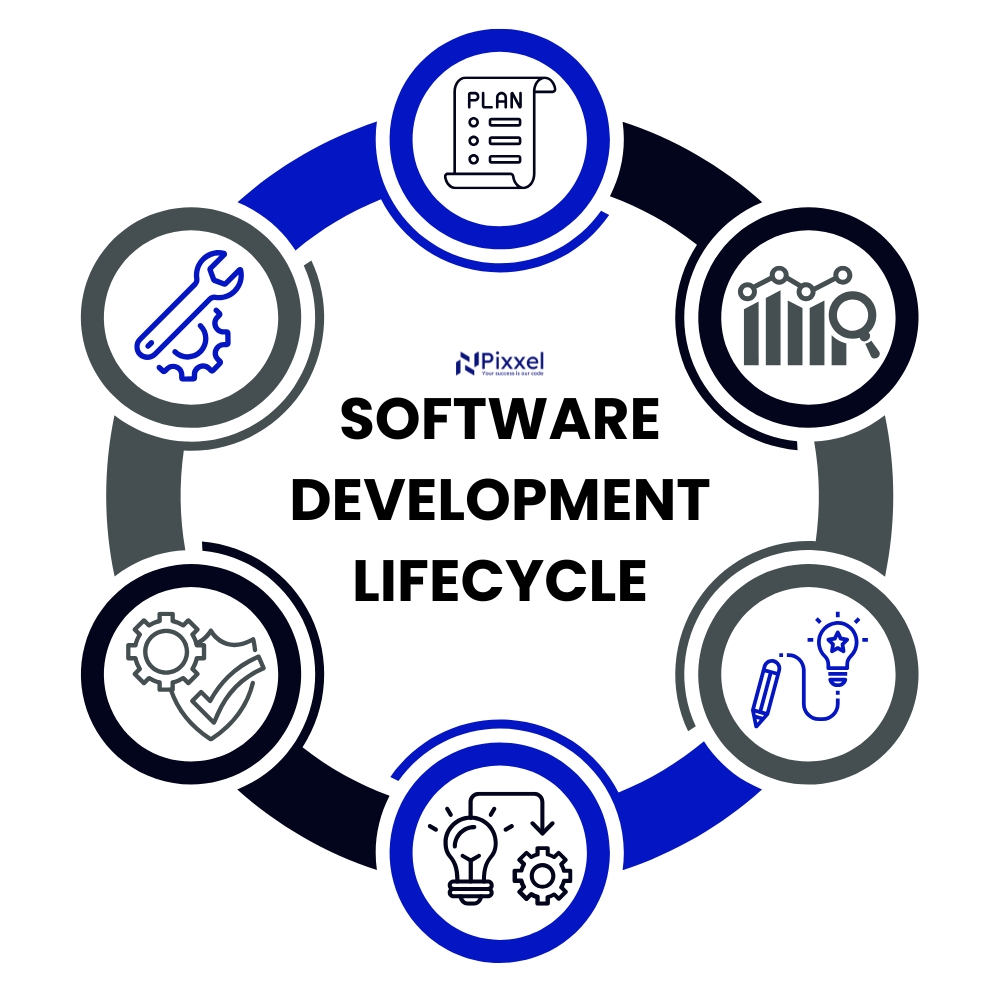How to choose a software development company? This question can feel like standing at crossroads. The stakes are high. You’re not just picking a service provider; you’re choosing a partner who could shape the future of your business.
A misstep can mean wasted resources, missed deadlines, or a product that fails to meet expectations. But get it right, and you’ve got a team that turns your vision into a reality, delivering value and success.
Finding the best fit doesn’t have to be overwhelming. By focusing on what truly matters, you can confidently navigate the process.
Let’s explore how you can identify a company that aligns with your goals, and company’s goals. In this guide, we will give you practical steps and actionable tips to make an informed decision.
Key Takeaways
- Define your project goals and needs before starting your search.
- Look for companies with proven expertise, clear communication, and strong security measures.
- Evaluate portfolios, reviews, and their approach to collaboration.
- Ensure they offer ongoing support and grant you ownership of the source code.
- Carefully review contracts for transparency and alignment with your goals.
Define project needs
Before you can choose a company, you need to know what you’re looking for. Clear project requirements including a software development timeline will save you time and prevent confusion later on.
Project clarity matters
When you’re clear about your project, you set yourself up for success. A well-defined plan helps you communicate your needs effectively. Without it, you risk misaligned expectations and wasted resources.
Steps to outline your goals, scope, and timeline
- Think about what you and your company wants to achieve
- Write down your company’s main goals
- Write down the problems you are trying to solve for your company
- Outline the scope of your project
- Write down all the features and functions you want
- Decide how much time you have and when you need it completed
- Write down a budget range
- Pro Tipp: Focus on the end result not on the process we will take care of that
10 Key Questions
There are many things you need to verify before choosing a software development partner for your company. And verifying each of them requires some knowledge to ensure that you’re on the right path. The following are some of the main things you need to confirm.
Good software company traits
Finding the right software development partner is essential for turning your vision into reality. We believe that a good software development company must have a combination of expertise, communication, flexibility, and a deep understanding of your business goals to deliver exceptional results.
Technical expertise
A good company should have experience building tailored software solutions similar to yours. You can look up a company’s past projects to see how they’ve dealt with similar problems and see if they can meet your company’s requirements. Check their portfolio to see if they’ve done it before and done it well.
Communication & Collaboration
Clear communication is key to any successful partnership. As a company, it is essential for us to be responsive and open to feedback. We work closely with you at every stage, welcoming your feedback and collaborating seamlessly with your team.
Flexibility & Adaptability
We know that no two projects are the same. As your needs evolve, you need a software development partner that can adapt quickly and effectively to keep your project on track.
Choosing the right partner is crucial, which is why understanding how to choose a software development company that aligns with your goals and priorities is essential. Discussing flexibility upfront is one of our priorities to avoid misunderstandings, ensuring that our approach fits seamlessly with your unique requirements.
Check tech skills & certifications
It’s important to know if the company has the skills needed for your project. Certifications and skills can give you confidence in their ability to perform. Having this information can give you the direction on how to choose a software development partner for your company.
- Reviewing certifications like AWS or Agile: Certifications show that the company stays up to date with industry standards. Look for credentials in relevant areas like cloud services or project management.
- Assessing technology stack and skills alignment: Find out their tools and technologies. Make sure their skills match the requirements of your project. For example, they should specialize in app development if you need a mobile app.
- Importance of continuous training and development: A company that invests in training stays ahead of the curve. Ask if their team regularly updates their skills to keep up with new trends.
Evaluate past projects
The best way to judge a company’s capability is by looking at its past work. Case studies and portfolios give you a clear idea of what they can do. Here are a few ways you can evaluate the company’s previous projects.
- Browse their portfolio to see examples of their work. Focus on projects similar to yours. This will help you gauge their expertise and creativity.
- Reach out to their previous clients if possible. Ask about their experience working with the company. This can provide valuable insights.
- If they’ve developed products available to the public, test them yourself. Check for quality, ease of use, and overall functionality.
Understanding your business goals
As a good partner, we not only just build software; we will understand your vision and work toward achieving it.
During early meetings, share your goals and expectations. Ask the company how they plan to align their work with your company objectives.
A discovery phase allows our company to dive deep into your needs. This phase helps define project requirements and ensures they understand your company’s vision.
Business analysts can also offer additional insights. These experts bridge the gap between your goals and technical implementation.
Pricing & Budget
Understanding pricing is crucial to avoid surprises later. Transparency is key.
- Comparing fixed-price vs. time-and-material models: Fixed-price projects have a set cost but may lack flexibility. Time-and-material models charge based on hours worked, offering more adaptability.
- Assessing transparency in cost estimates: Ask for detailed cost breakdowns. A good company will explain its pricing clearly without hidden fees.
- Balancing affordability with quality: Don’t just go for the cheapest option. Balance cost with the quality of work. A slightly higher price may save you money in the long run.
Read our full guide about software development costs.
Project management
We understand that the need for effective project management is not just a necessity—it’s a critical factor in achieving scalable, high-quality results. A structured project management process ensures smooth execution, minimizes risks, and delivers outcomes that align with your business goals.
Agile vs. Waterfall
We recognize that different projects demand different approaches. For large enterprises with complex, evolving requirements, we often recommend Agile methodologies, which prioritize flexibility, iterative progress, and continuous improvement. Agile is ideal for dynamic projects where priorities can shift as the market evolves or internal goals change.
Alternatively, for well-defined projects with a clear scope, Waterfall methodologies may be more appropriate. This structured, linear approach ensures each phase of the project is completed before moving to the next, providing a predictable path to success.
We work closely with you to evaluate your project’s complexity, timeline, and objectives to select the methodology that ensures the best outcomes.
Communication & Task Tracking Tools
We understand that seamless communication and transparent task tracking are essential. We leverage industry-leading tools to provide real-time updates, foster collaboration, and ensure accountability:
- Jira: Ideal for tracking tasks, managing workflows, and prioritizing objectives in complex projects.
- Slack: Facilitates instant communication, ensuring teams remain connected across departments, time zones, and geographies.
- Confluence: Serves as a centralized knowledge repository, keeping all stakeholders aligned.
- Microsoft Teams or Zoom: Ensures smooth and regular virtual meetings with stakeholders.
These tools allow us to maintain complete transparency, enabling your internal teams to stay informed and aligned with the project’s progress.
Update Frequency
We believe in proactive communication, especially when working with enterprises where multiple stakeholders are involved. Our project management process includes regular updates and progress reports to ensure clarity and accountability:
- Weekly Updates: These provide an overview of what has been achieved, what’s in progress, and any challenges encountered.
- Monthly Reports: Comprehensive reports that detail project milestones, resource utilization, and potential risks, ensuring alignment with your strategic goals.
- Real-Time Dashboards: For enterprises requiring up-to-the-minute data, we offer customized dashboards that provide insights into task completion, team performance, and project timelines.
We ensure all updates are structured to highlight key metrics and progress indicators that matter most to your leadership team.
Secure practices
We believe that security is not just an added feature, it’s a fundamental requirement. Protecting sensitive data, intellectual property, and maintaining compliance with global standards are critical aspects of any software development process.
Data Protection & NDAs
For enterprises handling vast amounts of sensitive and proprietary data, strict data protection measures are paramount. We implement the following to safeguard your information:
- Custom NDAs: We draft and sign Non-Disclosure Agreements tailored to your enterprise’s unique needs, ensuring complete confidentiality. These agreements extend across our entire team and subcontractors, if any, to protect your intellectual property.
- Secure Data Storage: We use encrypted and secure systems to store any project-related data, ensuring no unauthorized access.
- Restricted Access Protocols: Access to sensitive information is limited strictly to team members directly involved in your project, minimizing potential risks.
Compliance (GDPR/OWASP)
Large enterprises often operate across regions and industries, making compliance with international standards essential. We adhere to recognized frameworks to ensure your software meets all required regulations:
- GDPR Compliance:
For enterprises operating in the EU or handling EU citizens’ data, we ensure full adherence to General Data Protection Regulation (GDPR) requirements, including data minimization, user consent, and breach notification processes. - OWASP Guidelines:
Our development process follows the Open Web Application Security Project (OWASP) best practices, focusing on preventing common vulnerabilities like SQL injection, cross-site scripting, and other threats. - Industry-Specific Regulations:
We adapt to industry-specific compliance requirements such as HIPAA for healthcare, PCI DSS for payment systems, and ISO 27001 for information security management.
Vulnerability Assessments
Security is not a one-time effort—it’s an ongoing commitment. We incorporate regular checks to ensure your software remains secure throughout its lifecycle:
- Automated Vulnerability Scans:
We integrate tools that automatically detect vulnerabilities during development and after deployment, ensuring real-time identification of potential risks. - Penetration Testing:
Our security experts conduct regular penetration testing to identify weaknesses before malicious actors can exploit them. - Patch Management and Updates:
We provide ongoing maintenance to address new vulnerabilities as they emerge, ensuring your software stays resilient against evolving threats. - Audit Trails:
For enterprises requiring auditability, we maintain detailed records of all security checks, ensuring compliance with internal and external audits.
Company Location
Location impacts communication, cost, and overall collaboration. Choose wisely based on your needs.
If they’re in a different time zone, ask how they plan to handle communication. Compatibility can save time and reduce delays.
Cultural differences can affect working relationships. Look for a company that understands your values and expectations.
Offshore companies can be more affordable, but local ones may offer better accessibility. Weigh the pros and cons for your specific situation.
We have teams across Europe and strive to bring the best possible teams and talents to your software projects.
Support & Maintenance
Your relationship with the company doesn’t end at launch. Post-launch support is something we often miss when choosing a software development company. There are many things you need after the launch which you must confirm beforehand.
Ask if they offer updates and fixes after the product goes live. This ensures long-term functionality. Check if they can scale your software as your business grows. This saves you from starting over later.
Review the maintenance terms in the contract. Make sure they’re clear and meet your expectations.
Contract Considerations
A well-drafted contract protects both parties and sets clear expectations. It is essential to make sure that everything you agreed upon is present in the contract. This includes understanding how to choose a software development company that meets your specific needs and ensuring that key details, such as timelines, deliverables, and payment terms, are clearly outlined.
- Project Scope and Deliverables
- Timelines and Milestones
- Payment Terms
- Ownership and Intellectual Property
- Confidentiality and NDAs
- Change Management
- Quality Assurance and Testing
- Support and Maintenance
- Termination Clause
- Liability and Dispute Resolution
- Communication and Reporting
- Security Measures
- Third-Party Dependencies
Source Code Ownership
Ensure you own the source code. This gives you control over future updates and changes.
For example, at Pixxel Solutions, we ensure that the client has all ownership of the code and intellectual property.
